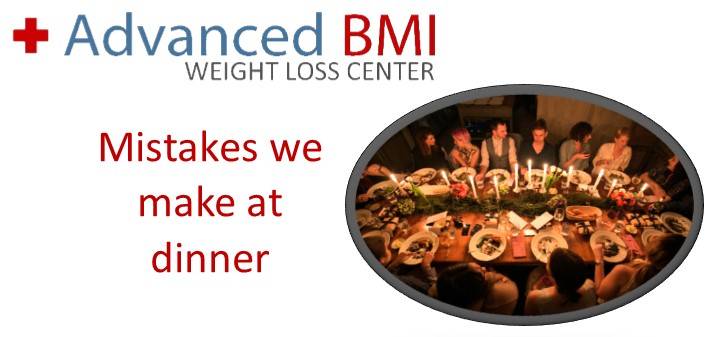Summary: Dinner is often the only meal that is done in a group, whether that group is family or a gathering of friends. That means there are large quantities of food available. So if you haven’t had well-balanced meals for breakfast and lunch, and if you are feeling exhausted after a long day, you probably have a higher chance of overindulging at dinner.
Dinner is often the only meal that is done in a group, whether that group is family or a gathering of friends. That means there are large quantities of food available. So if you haven’t had well-balanced meals for breakfast and lunch, and if you are feeling exhausted after a long day, you probably have a higher chance of overindulging at dinner.
These are the most common mistakes we make at dinner and how to avoid them.
1. Making it a big meal
When we are in a large gathering, we tend to make a lot of food to make sure everyone gets plenty of it. However, experts agree that we should have at dinner around 500 calories on average, while some even advise that it should amount to 20-25 percent of your daily calorie intake.
Think of it this way: when do you need calories and energy the most? Certainly not at end of the day, but at the beginning of it. That is why breakfast should be your largest meal and dinner should be around 500 calories.
2. Putting the serving dishes in front of you
When the food is right there in front of you, it encourages you to serve seconds and overeat. What you can do is serve your food in a well-proportioned manner in the kitchen and eat slowly. Take advantage of the company to distract yourself from food with conversation.
3. Eating in front of a screen
After dinner, many people watch television or surf the internet, which could lead to unnecessary snacking.
4. Eating out too much
Restaurant foods often contain more calories, fat, sugar, and salts than homemade meals. It is okay to eat out once each week, but more than that can be harmful to your health. 5. Having dessert Dessert adds unnecessary calories and sugar to your meal. In addition to adding to your weight, it can interrupt your sleep.









